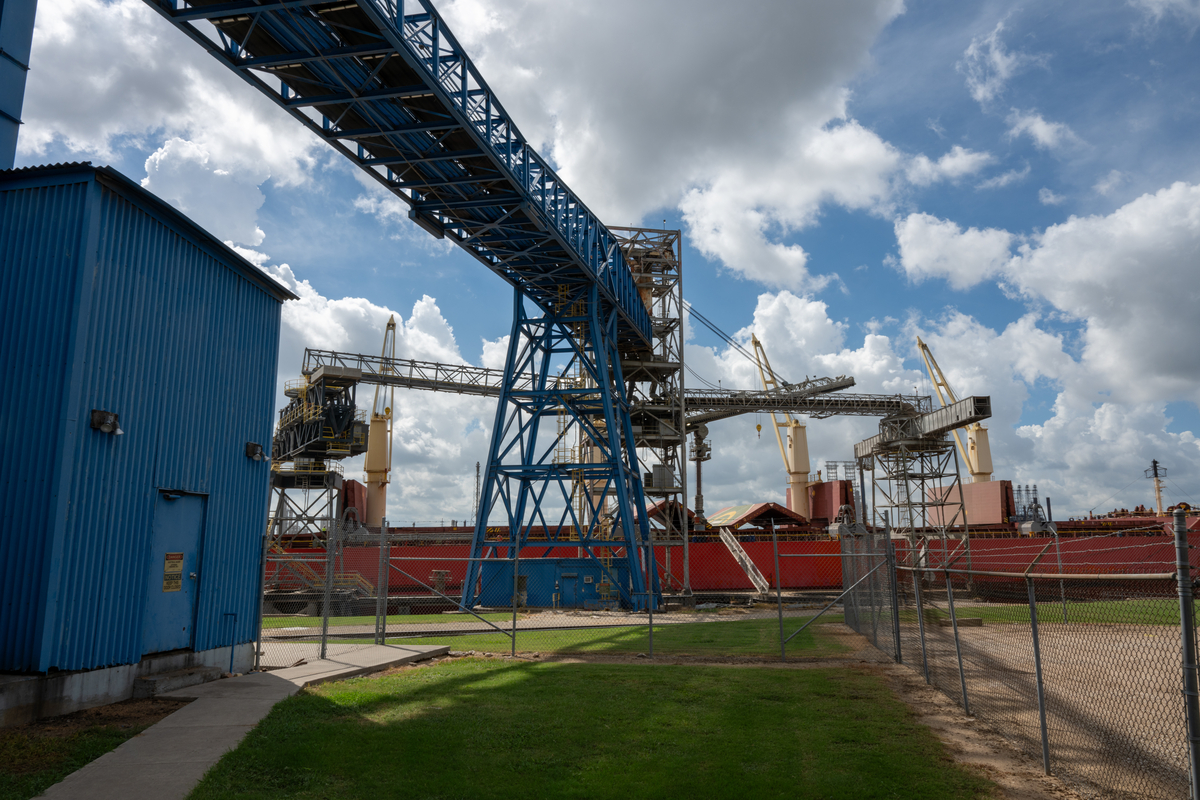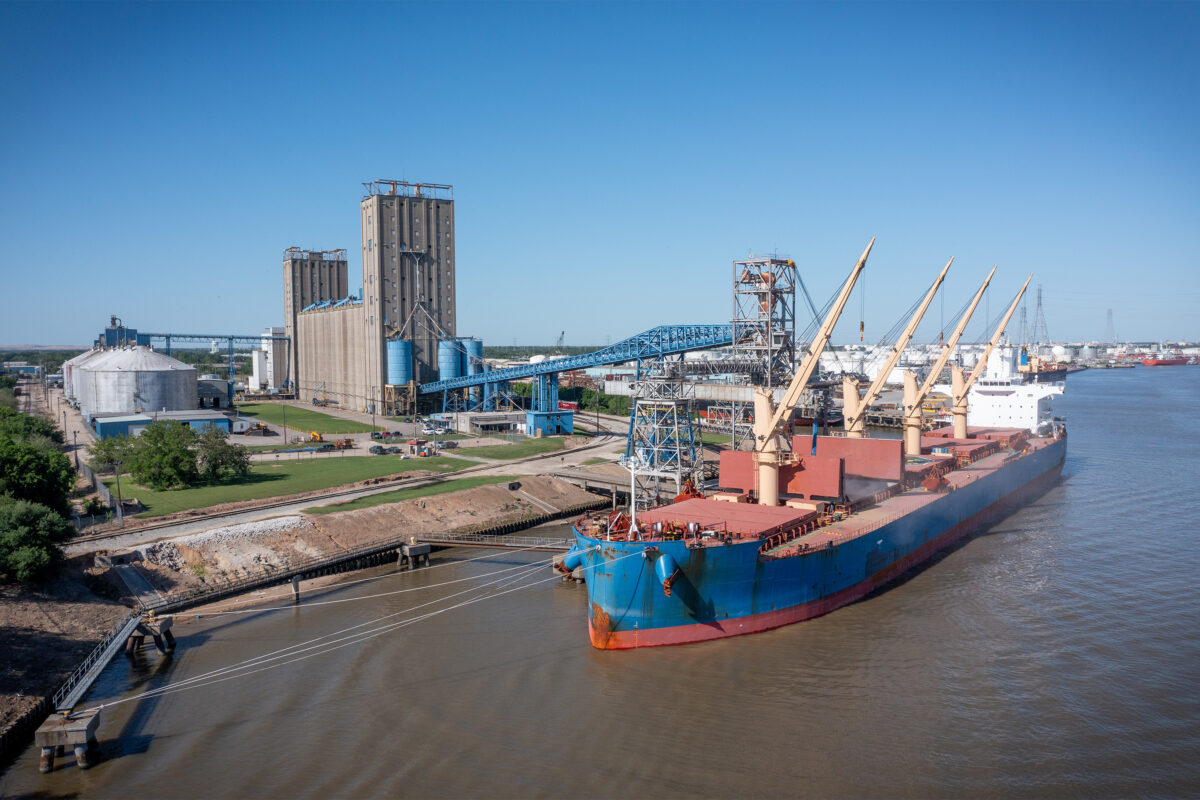Dredging Project Readies Mississippi River for Efficient Soy Transportation

United Soybean Board-funded research is used to inform a dredging project in the Mississippi River, which will improve freight-based transportation of soybeans and create a more efficient supply chain.
ST. LOUIS (July 31, 2020) — Checkoff-funded research, planning, analysis and design, led by the United Soybean Board (USB), has informed the launch of a dredging project to provide crucial upgrades to the lower Mississippi River — a major channel for soybean exports. Once complete, the new depth will unlock long-term benefits for soybeans and other U.S. agricultural exports.
“The United Soybean Board’s mission has always been to create value for soybean farmers,” said Meagan Kaiser, USB farmer-leader and soybean farmer from Missouri. “More efficient shipping builds value in the supply chain and expands opportunities for our soybeans to reach our customers around the world.”
The Army Corps of Engineers announced it will be funding and proceeding with deepening the Mississippi River from 45 to 50 feet between Baton Rouge, Louisiana, and the Gulf of Mexico. The Louisiana Department of Transportation and Development will also provide funding. This dredging will help deliver soybeans to market in higher quantities and more cost-effective shipments that accommodate larger global ports — creating a more economically productive infrastructure for transporting soy products. For the agriculture industry, the Mississippi River is one of the most important waterways in the nation. It connects the Midwest and Northern growing regions to the global market. But it requires modernization to uphold its competitive advantage.
USB was joined by the Soy Transportation Coalition (STC), U.S. Soybean Export Council (USSEC) and American Soybean Association (ASA) in this endeavor to ensure the most efficient transportation methods are available to maximize profit opportunities for U.S. soybean farmers. Checkoff-funded research by STC showed this dredging work would save 13 cents per bushel of freight while increasing the load by 500,000 bushels per ocean vessel and bring an additional $461 million in revenue to U.S. soybean farmers.
“Dredging will help boost profitability for soybean farmers across the country,” said Woody Green, soybean farmer and USB director from South Carolina. “The project leads to a more reliable and globalized supply chain of U.S. soy products. We commend the Army Corps of Engineers for prioritizing the improvement of international trade opportunities for our farmers.”
A previous press release by STC emphasized the importance of this particular 256-mile stretch of the Mississippi River. This stretch accounts for 60% of U.S. soy exports, and 59% of corn exports from that region arrive via the inland waterway system. The work conducted in this project specifically supported environmental assessments (research) and education of infrastructure improvements, located near the Port of New Orleans, for the benefit of U.S. soybean farmers.
“If I had to select a single infrastructure enhancement that would provide the most benefit to the greatest number of U.S. soybean farmers, deepening the lower Mississippi River would be my choice,” said Mike Steenhoek, executive director of STC.
USB farmer-leader Kaiser said she is proud of the entire U.S. Soy community and its partners for working together to turn research into action.
“I hope other organizations across the various commodities will take to heart that collaboration can stimulate significant improvements to our nation’s infrastructure and result in added value for our products across all crops,” said Kaiser.
To learn more about infrastructure and the soybean industry, visit soytransportation.org or unitedsoybean.org.
About United Soybean Board: United Soybean Board’s 78 volunteer farmer-directors work on behalf of all U.S. soybean farmers to achieve maximum value for their soy checkoff investments. These volunteers invest and leverage checkoff funds in programs and partnerships to drive soybean innovation beyond the bushel and increase preference for U.S. soy. That preference is based on U.S. soybean meal and oil quality and the sustainability of U.S. soybean farmers. As stipulated in the federal Soybean Promotion, Research and Consumer Information Act, the USDA Agricultural Marketing Service has oversight responsibilities for USB and the soy checkoff. For more information on the United Soybean Board, visit unitedsoybean.org.
###
Paul Murphy-Spooner at United Soybean Board, 515.975.6584
© 2020 United Soybean Board. All Rights Reserved. [57961]



